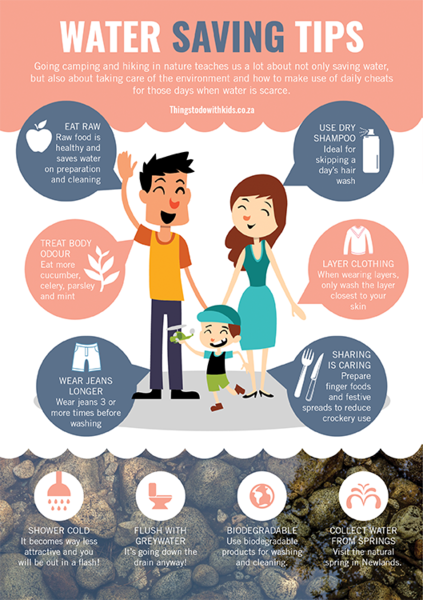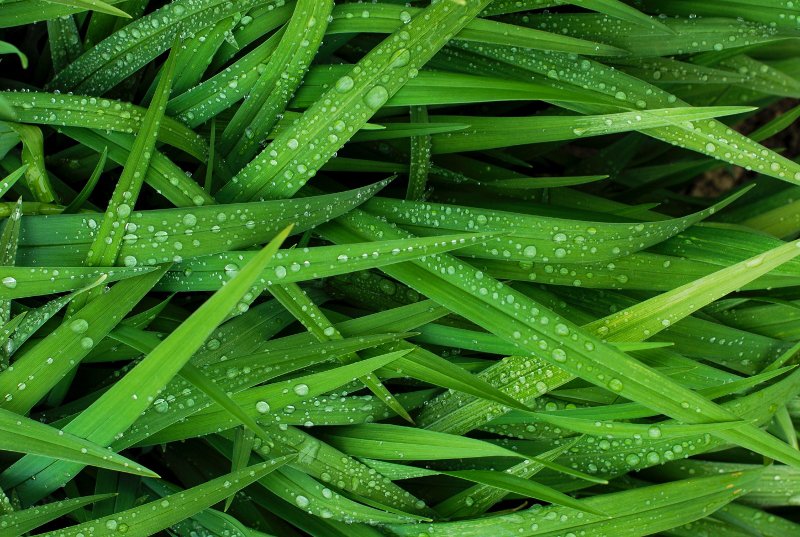Level 5 Water Restrictions – Practical tips on living with little to no water
Yesterday News24 reported that further water restrictions for domestic and commercial users have been implemented in Cape Town. This is based on an announcement made by Mayor Patricia de Lille on Sunday.
In our western culture and city life many of us have come to know water as something coming from a tap. For some it has always just been there, ready to drink and use, weather it may have been to quench one’s thirst or for kids to run wild under sprinklers.
Over the past few years, due to low rainfall in Cape Town, we have learned to save water, but what do we do if there really is no water?
My lawn is green, we have had some rain. And this superficial “green drought” can be misleading. The major’s announcement brings us back to the facts. Water levels are lower now than last year this time and with recommendations like “Keep 2-5 litres of water at hand” you start to think twice. The facts are – we may be in serious trouble.
In an age where we tend to feel a little more entitled, especially if one pays tax, we shift blame and point fingers, but in the end, if there is none… no amount of anger or complaining can make water.
The Western Cape government has declared the entire province a disaster area in order to deal with the ongoing drought according to Alan Winde. This may help with the release of funding to assist in the water crisis, but reality is, these processes can take years to complete. And in the meantime, we will have to manage.
Here are some ways to cope with little or no water, for city slickers, who may have gotten a little too used to having it “on tap”.
There are indeed some valuable lessons parents and children can learn from time spent in nature. Families who hike regularly use these tricks to keep looking, and smelling okay. Going camping and hiking in nature teaches us a lot about not only saving water but also about taking care of the environment and how to make use of daily cheats for the days without excess water. One of the effects of the water shortage mentioned is that pressure may drop and people who stay higher up in a building may have days without water before it runs out. These tips can be implemented immediately- don’t wait for crisis to strike.
- Use dry shampoo
- dry shampoo is ideal for skipping day’s hair wash
- check that your brand is ozone friendly
- Use biodegradable shampoo’s- so you can reuse the water on plants
- ask your pharmacist or local outdoor shop
- Use biodegradable washing powders- again for reuse
- Shower cold (like mountain spring cold)
- it becomes less attractive to shower and you will be in and out in a flash
- you won’t waste any water waiting for it to get hot
- Top and tail
- use a small basin and a cloth instead of a bath or shower and only wash where it is really needed
- Flush the toilet using greywater
- it is going down the drain anyway
- Treat body odour by eating the right food
- eat more cucumber, celery, parsley, peppermint, spearmint
- eat less offensive foods like onion, garlic
- keep drinking fresh water instead of caffeinated drinks
- Wear jeans 3 or more times before washing them- the fabric can handle it
- When wearing layers (office workers), only wash the bottom layer, closest to your skin and wear the top layers again later during the week
- Eat raw food instead of cooking it
- this saves water for preparation
- you have less cleaning to do
- it is super healthy
- PLUS you save a lot on electricity
- Sharing is caring
- design a festive spread and eat from one serving dish i.s.o plates
- finger foods are perfect for this
- eat straight from the braai grid - braai is waterless cooking
- Use water purifying tablets when needed
- to get rid of bacteria and other harmful substances
- use tablets with caution + read the insert
- Collect water from natural fountains + Springs
- there is one in Cape Town, Newlands Spring, Springs Way

This infographic was originally shared in Things to do with kids Magazine, South Africa - kindly credit when you share.
Even though we most definitely hope that it will not come to the point where we only have bottled water available, I think it is time to start committing to “Level 5” water saving. We have moved past the level one water saving tips like fixing leaking taps and using grey water. Take what you can from this list and get the kids to join in on saving water and appreciating this valuable resource.
Tanya





